MENTAL HEALTH REVIEW TRIBUNAL Practice and Policy
advertisement
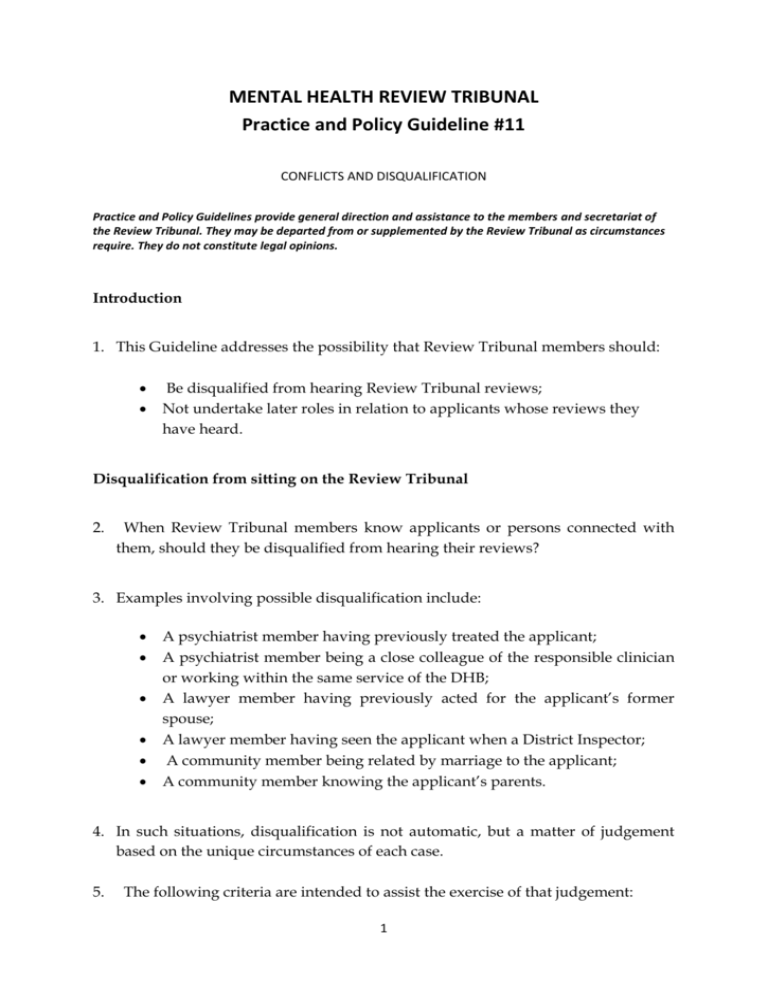
MENTAL HEALTH REVIEW TRIBUNAL Practice and Policy Guideline #11 CONFLICTS AND DISQUALIFICATION Practice and Policy Guidelines provide general direction and assistance to the members and secretariat of the Review Tribunal. They may be departed from or supplemented by the Review Tribunal as circumstances require. They do not constitute legal opinions. Introduction 1. This Guideline addresses the possibility that Review Tribunal members should: Be disqualified from hearing Review Tribunal reviews; Not undertake later roles in relation to applicants whose reviews they have heard. Disqualification from sitting on the Review Tribunal 2. When Review Tribunal members know applicants or persons connected with them, should they be disqualified from hearing their reviews? 3. Examples involving possible disqualification include: A psychiatrist member having previously treated the applicant; A psychiatrist member being a close colleague of the responsible clinician or working within the same service of the DHB; A lawyer member having previously acted for the applicant’s former spouse; A lawyer member having seen the applicant when a District Inspector; A community member being related by marriage to the applicant; A community member knowing the applicant’s parents. 4. In such situations, disqualification is not automatic, but a matter of judgement based on the unique circumstances of each case. 5. The following criteria are intended to assist the exercise of that judgement: 1 (a) The importance of maintaining the appearance of independence and fairness; (b) Whether the applicant seeks disqualification ; (c) Whether the applicant’s evidence would be affected by the presence of the member; (d) Whether the member is able to hear the case objectively, dispassionately and with an open mind; (e) Whether the member has relevant knowledge which may not emerge in the evidence; (f) The period of time since the prior contact occurred; (g) The significance, frequency and duration of past contact; (h) The degree of formality and seniority involved in the past contact; (i) Whether and to what extent the past contact was directly with the applicant; (j) Whether the past contact was on account of a family, whanau or friendship connection. 6. As soon as the member becomes aware of reasons which might justify disqualification, they should notify the secretariat or the other Review Tribunal members concerned. 7. Should a member be aware of reasons, which might justify disqualification but the applicant is unaware of that, it may be fair and prudent to advise the applicant. 8. A psychiatrist member, who has prepared a report pursuant to clause 4 of the First Schedule of the Act in respect of an applicant, should not hear a later application by that applicant. 2 Disqualification from non-Review Tribunal work 9. Should Review Tribunal members undertake professional roles in relation to applicants whose cases they have previously heard? 10. For example: Should psychiatrist members treat past applicants? Should lawyer members act for past applicants? Should community members provide support to past applicants? 11. As a matter of general principle, once members have heard cases, they should refrain from engaging with applicants in some other professional capacity. 12. Later involvement in other capacities may serve to undermine the quasi-judicial standing of the Review Tribunal in the eyes of others. 13. Fairness issues may be involved. For example, Review Tribunal members receive confidential and sensitive information from applicants and others, which might not have been forthcoming had the later role been known at the time. 14. The above principle also applies to those who have prepared reports for the Review Tribunal about applicants pursuant to clause 4, Schedule 1 of the Act. Last updated August 2015 NJ Dunlop Convener 3



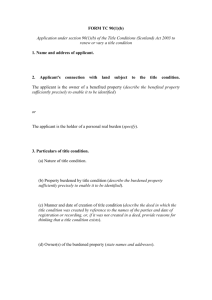
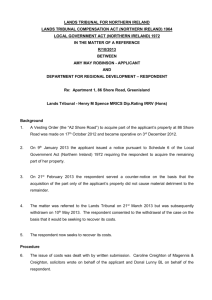
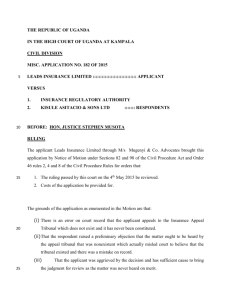
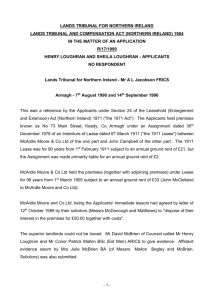
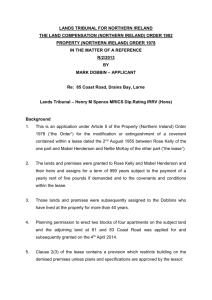
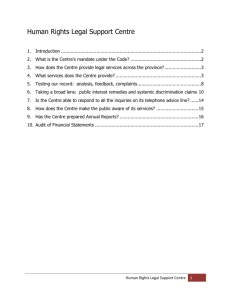
![[EAT]: Employment Appeal Tribunal Judgment 24th June 1996.](http://s3.studylib.net/store/data/007301771_1-7bb2106655d43a93c65a88192bf2d2f7-300x300.png)